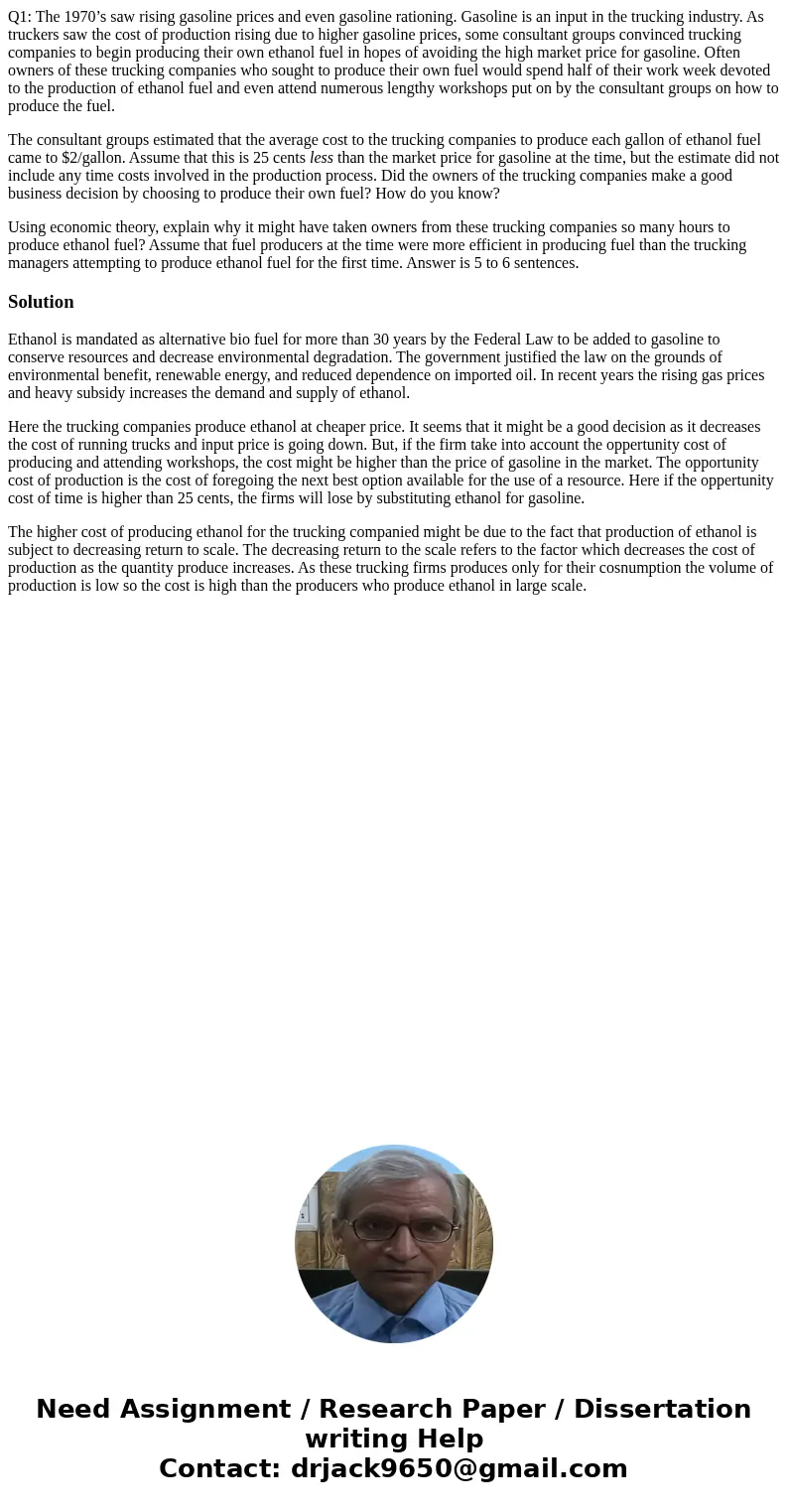Q1 The 1970s saw rising gasoline prices and even gasoline ra
Q1: The 1970’s saw rising gasoline prices and even gasoline rationing. Gasoline is an input in the trucking industry. As truckers saw the cost of production rising due to higher gasoline prices, some consultant groups convinced trucking companies to begin producing their own ethanol fuel in hopes of avoiding the high market price for gasoline. Often owners of these trucking companies who sought to produce their own fuel would spend half of their work week devoted to the production of ethanol fuel and even attend numerous lengthy workshops put on by the consultant groups on how to produce the fuel.
The consultant groups estimated that the average cost to the trucking companies to produce each gallon of ethanol fuel came to $2/gallon. Assume that this is 25 cents less than the market price for gasoline at the time, but the estimate did not include any time costs involved in the production process. Did the owners of the trucking companies make a good business decision by choosing to produce their own fuel? How do you know?
Using economic theory, explain why it might have taken owners from these trucking companies so many hours to produce ethanol fuel? Assume that fuel producers at the time were more efficient in producing fuel than the trucking managers attempting to produce ethanol fuel for the first time. Answer is 5 to 6 sentences.
Solution
Ethanol is mandated as alternative bio fuel for more than 30 years by the Federal Law to be added to gasoline to conserve resources and decrease environmental degradation. The government justified the law on the grounds of environmental benefit, renewable energy, and reduced dependence on imported oil. In recent years the rising gas prices and heavy subsidy increases the demand and supply of ethanol.
Here the trucking companies produce ethanol at cheaper price. It seems that it might be a good decision as it decreases the cost of running trucks and input price is going down. But, if the firm take into account the oppertunity cost of producing and attending workshops, the cost might be higher than the price of gasoline in the market. The opportunity cost of production is the cost of foregoing the next best option available for the use of a resource. Here if the oppertunity cost of time is higher than 25 cents, the firms will lose by substituting ethanol for gasoline.
The higher cost of producing ethanol for the trucking companied might be due to the fact that production of ethanol is subject to decreasing return to scale. The decreasing return to the scale refers to the factor which decreases the cost of production as the quantity produce increases. As these trucking firms produces only for their cosnumption the volume of production is low so the cost is high than the producers who produce ethanol in large scale.

 Homework Sourse
Homework Sourse